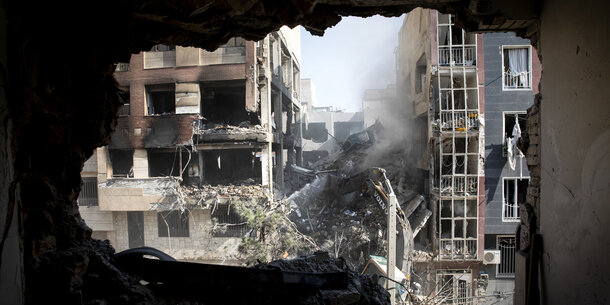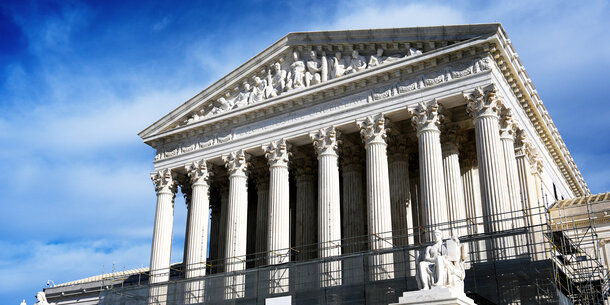The response to my column about what to do with police officers who participated in the Trump rally on January 6 was immediate and intense. And what’s clear so far is that the dozens of law enforcement agents who traveled to the nation’s capital that day to support or witness an insurrectionists’ cause will long be tagged by it. Some may get charged with a crime. Some may be fired. But even those who keep their jobs will face credibility questions for the rest of their professional lives. They will forever be the cops who traveled miles to gleefully participate in a potentially dangerous event based on a monstrous lie.
The gist of my February 1 piece is that there is really only bad news and worse news for these cops. Either they were insurrectionists, in which case they have no right to wear a badge, or they were too foolish to heed all of the warnings about potential violence in Washington that day, in which case they really have no right to wear a badge. What actually happens to these officers, however, turns both on law and local politics — or more precisely, the politics of local policing. It figures that it would be harder for a cop to come home from the Trump rally to a blue country than a red county, right? But we’ll see.
The legal answers will come from the text of the First Amendment. Some cops who are fired are going to sue to get their jobs back by saying they were illegally retaliated against for exercising their free speech rights. They will say that even public employees — government employees — have certain First Amendment rights. They do! But those civil lawsuits will turn on whether the rights of those cops to attend Trump’s rally outweigh the interests their police departments have in ensuring public confidence in the competence of officers, including the officers’ ability to easily distinguish uncontroverted evidence from baseless conspiracy theories.
That’s how the legal case will play out. What’s a little clearer now is what the politics of it will look like. Law enforcement agents who attended the rally and the ensuing riot will be fired, whether or not they are criminally charged. Those officers who attended the rally but left before the riot will likely keep their jobs unless their social media profiles from before the rally, or their comments after it, make it clear they are a discredit to their departments. But even those cops who attended the rally and left before the riot — and don’t have Facebook walls full of white supremacist junk — aren’t easily going to be able to shake their link to the Capitol riot.
The two most interesting reactions to my piece dovetail together and are worth mentioning. One law enforcement source told me that police officials in some jurisdictions will be willing, if not eager, to fire or discipline officers who were at the rally but not involved in the riot if their participation that day was part of a broader pattern of support for racist causes or sedition. Another source — a few actually — wondered whether police officials would be scared to look too closely under such rocks given how extensive the links seem to be between law officers and right-wing groups. I mean, that’s the heart of the problem to begin with, isn’t it?
We are seeing a form of this situation unfold already in Franklin County, Kentucky, home to the state capital, Frankfort. Jeff Farmer, a sheriff’s deputy, proudly attended the Trump rally and now has come home to controversy. Even before the insurrection and coup attempt in Washington, even before the protests last summer in Frankfort over police brutality, Farmer’s conduct as a cop had attracted the attention of local civil rights leaders and defense attorneys for what they consider misconduct, ranging from use of excessive force to discriminatory practices.
When word got out that Farmer had attended the Trump rally — and it wasn’t as though he felt he needed to hide the news — Franklin County Sheriff Chris Quire was forced to launch an investigation that has roiled the county. On the one side are Farmer’s many supporters, on the force and in the community, who say he’s a good cop who has done a great deal to apprehend drug dealers. On the other side are those who see in Farmer’s Trump-infused journey to Washington as further proof that his professional judgment, at a minimum, should be called into question. Cops have constitutional rights, remember, but there is no constitutional right to be a cop.
Nathan Goodrich, an attorney who runs the public defender’s office in Franklin County, put it well last week in an interview with Jon Schuppe of NBC News. Goodrich has clients whose lives have been directly impacted by Farmer’s work. “The march was based on a lie — ‘stop the steal,’ the election was stolen,” Goodrich said. “So much of Deputy Farmer’s work as a detective is determining when people are telling the truth and lying to him. It raises questions about his ability to do his job as a detective when he’s engaged in a rally in support of a belief that so many members of the community believe is utterly without support.”
Farmer’s story so far suggests he is hewing to the same line we’ve seen expressed by cops in several other cases in which they’ve been questioned about their roles in Washington on January 6. But Farmer’s story suggests more, too. During his trip, he “documented his arrival with friends on Facebook, and after the siege wrote a post in which he called the rioters ‘idiots’ and questioned whether they were really Trump supporters.” It’s that last part that ought to trouble the sheriff and the residents of the county. And if I were Goodrich and company, it’s that last part I’d want to ask Farmer about under oath.
It was beyond a reasonable doubt on the day of the riot that most if not all of the rioters were Trump supporters. That was clear during the rally that preceded the riot, it was clear as the siege was unfolding and we all could see the harrowing images from inside the Capitol, and it was clear in the immediate aftermath of the attack, even before federal law enforcement officials started arresting and prosecuting right-wing extremists involved in the insurrection. For a cop not to see that, or to see it and pretend otherwise, goes to the very heart of what it ought to mean to be a cop: Seek the truth. Follow the evidence. Stay clear of the crap.
I hope that the sheriff is asking tough questions of Farmer in Franklin County. And I hope that Farmer is answering them candidly. The more we hear about the coordination that took place in advance of the riot, the more we hear about all the threats that preceded the rally, the more it becomes clear that no law enforcement agent should have been near that rally that day as a “private citizen.” Whether Farmer loses his job or not, and today I have no reason to believe that he will, it’s going to be virtually impossible for him to go back to his pre-riot days. His community will never see him the same way again. Maybe it was all worth it. I would want to know that, too, if I were a public defender.
In the same way that prosecutors keep lists of police officers they don’t trust to testify, there will now be a new list of cops whose credibility may legitimately be questioned about January 6 if they are ever called as a witness in a future criminal case. Only this list won’t be the secret purview of prosecutors and police union officials. It won’t be the subject of countless years of litigation. One day very soon (if it hasn’t already happened), there will be a crowdsourced, publicly available database containing the names of every law enforcement agent associated in any way with the Trump rally or deadly riot that followed.
That will be a great day. Every cop who believes today that Trump won the election, or who believed it on January 6, should have to answer for that belief all the rest of their days in uniform. They should have to answer it in courtrooms under oath in front of juries. And in conference rooms during sworn depositions. They should have to answer it during public press conferences. It should cast a pall on everything they touch in their professional lives. We talk a lot about police accountability and about how we are going to root conspiracy theories and white supremacy out of law enforcement. Here’s one way to begin doing that.
The views expressed are the author’s own and not necessarily those of the Brennan Center.


